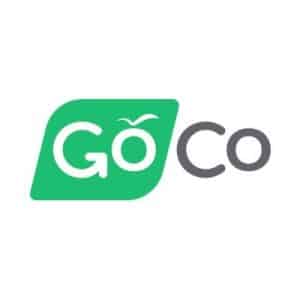The best HRIS systems will help you organize and manage employee details, streamline hiring and onboarding, and automate payroll, benefits administration, time tracking, performance management, and HR reporting.
In this guide, we’ve reviewed the best HRIS software for small businesses and large, so you can find the right product to streamline your business’ HR function.
Best HRIS Systems 2024
- Show Full Guide
The Best HRIS Systems Reviewed
Our reviews of human resource information systems (HRIS) focus on core HR functions, security, usability, and value for money. Learn more about how we approach our HR software reviews in our methodology.
Deel — Best HR software for global teams
| Starting Price | $49/month for contractors $599/month for EOR |
|---|---|
| Learning Management Tools | ✅, Deel engage |
| Top Features | Hiring and managing global employees |
| Customer Support | 24/7 Live Chat, Email, and Phone |
Pros
- Manages international payroll efficiently
- Easy to navigate and use
- Supports business growth
Cons
- Higher fees for advanced features
- Limited integrations
Remofirst — Best for managing international payroll in 170+ countries
| Starting Price | $25/month/user for contractors $199/month/user for EOR |
|---|---|
| Learning Management Tools | ❌ |
| Top Features | Visa and relocation support |
| Customer Support | 24/7 Dedicated Accounting Manager |
Pros
- Supports international recruitment and payroll
- Cost-effective solution
- Ensures global regulatory adherence
Cons
- Steep learning curve
- Offers fewer advanced features
Paycor — Best HRIS payroll software management across niche industries
| Starting Price | Custom |
|---|---|
| Learning Management Tools | ✅ |
| Top Features | AI-written job descriptions and timekeeping |
| Customer Support | 24/7 Live Chat |
Pros
- User-friendly interface
- Robust reporting and analytics
- Can scale with your business
Cons
- Can become expensive
GoCo — Best for time-saving workflow automations and modular pricing

| Starting Price | $5/month per user |
|---|---|
| Learning Management Tools | ❌, via Integration |
| Top Features | Document management and dynamic file sharing |
| Customer Support | 24/7 Live Chat, Email, Phone |
Pros
- Flexible and customizable
- Responsive customer support
- Sleek platform that’s easy to learn
Cons
- Limited third-party integrations
- Limited mobile app functionality
Greenhouse — Best for casting a wider net for recruitment

| Starting Price | Custom pricing |
|---|---|
| Learning Management Tools | ❌, via Integration |
| Top Features | Hiring and onboarding new employees |
| Customer Support | 24/7 Dedicated Account Manager |
Pros
- Excellent and robust recruitment tools
- Intuitive and modern platform
- Strong reporting capabilities
Cons
- Initial setup can be tricky
- Can become expensive for smaller businesses
Bambee – Best for risk mitigation
| Starting Price | $99/month |
|---|---|
| Learning Management Tools | ✅ |
| Top Features | Company Policy Management, Real Time Chat Service for Employees & HR Communication |
| Customer Support | 24/7 Dedicated Account Manager |
Pros
- Access to dedicated HR professionals
- Ensures regulatory compliance
- Suitable HRIS for small businesses
Cons
- Few advances HR tools
- Less flexibility in workflows
Rippling – Best for automating employee management
| Starting Price | $8/month/user |
|---|---|
| Learning Management Tools | ✅, Added fee |
| Top Features | Onboarding Automation, Compliance 360, Advanced Reports |
| Customer Support | 24/7 Live Support |
Pros
- Comprehensive all-in-one solution
- Intuitive automation features
- Suitable to scale with business growth
Cons
- Reports of inconsistent customer support
Gusto – Best for payroll processing
| Starting Price | $40/month, plus $6/mo per person |
|---|---|
| Learning Management Tools | ✅ |
| Top Features | Unlimited Payroll Runs, Wide Range of Health and Financial Benefits, Talent Management |
| Customer Support | 24/7 Live Chat, Email, Phone |
Pros
- Encompasses payroll, benefits, and HR tools
- Affordable pricing compared to competitors
- Easy-to-use mobile app
Cons
- Lacks more advanced HR tools
- Initial set-up takes a while
TriNet – Best for up-to-date HR compliance
| Starting Price | $8 per employee per month |
|---|---|
| Learning Management Tools | ✅, via Integration |
| Top Features | Compensation Management, Employee Engagement Surveys, HR Consulting Expertise |
| Customer Support | 24/7 Live Chat, Email, Phone |
Pros
- Access to HR experts
- Includes a wide range of employee benefits
- Suitable for growing businesses
Cons
- The user interface could be better
- Inconsistent customer support
Paychex – Best for easy usage
| Starting Price | Custom |
|---|---|
| Learning Management Tools | ✅ |
| Top Features | Complete HR Solutions, Screening & Employee Onboarding Services, Job Costing |
| Customer Support | 24/7 Live Chat, Email, Phone |
Pros
- Easy-to-learn platform for beginners
- Includes a wide range of HR tools
- Includes payroll processing
- Will scale with your business
Cons
- Can become expensive
- Limited integration options
The Top HRIS Systems Compared
| Provider | Best For | Starting Price | Free Trial | Onboarding | Time Tracking | Staff Evaluations |
|---|---|---|---|---|---|---|
| Deel | Hiring and managing global talent | $49/month for contractors, $599/month for EOR | Deel HR is free for teams of up to 200 | Yes | Yes | Yes |
| Remofirst | Visa support, private healthcare, and relocation | $25/month per user for contractors, $199/month per user for EOR | Demo | Yes | Yes | No |
| Paycor | Payroll management across niche industries | Not public | Demo | Yes | Yes | Yes |
| GoCo | Workflow automations and modular pricing | $5/month per user | Demo | Yes | Yes | Yes |
| Greenhouse | Building a robust pipeline of qualified candidates | Not public | Demo | Yes | No | No |
| ClearCompany | Talent management | Quote-based | Demo | Yes | No | Yes |
| Rippling | Creating a unified source of truth for your organization | $8/month per user | Demo | Yes | Yes | Yes |
| Paychex Flex | Expediting payroll | Quote-based | N/A | Yes | Yes | No |
| Factorial | HR automation | $6.20/month per user | 7-day trial | Yes | Yes | Yes |
| Connecteam | Workforce management | Free for up to 10 users | 14-day trial | Yes | Yes | Yes |
| Arcoro | Construction companies | Quote-based | Demo | Yes | Yes | Yes |
| Bambee | Outsourcing HR to a dedicated HR manager | $99/month | 30 days for $1 | Yes | No | Yes |
| TriNet | Risk mitigation | Quote-based | N/A | Yes | Yes | Yes |
| Insperity | Full-service HR | Quote-based | N/A | Yes | Yes | Yes |
| Justworks | Hiring and onboarding remote teams | $59/month per user | Demo | Yes | Yes | No |
| Workable | Large firms sourcing and evaluating candidates | $149/month | 15-day trial | Yes | No | No |
| Eddy | Time tracking and PTO management | $6/month per user | 14-day trial | Yes | Yes | No |
| Zenefits | Benefits administration | $8/month per user | 14-day trial | Yes | Yes | Yes |
| UZIO | Automating pay runs | $6.50/month per user | 30-day trial | Yes | Yes | No |
| Beams.ai | Employee engagement and recognition | $3.20/month per user | Free up to 10 users | No | No | No |
| HR.my | Free attendance and leave management | Free | Free-forever plan | No | Yes | No |
| monday.com | CRM and project management integration | $8/month per user | Free up to 2 users | Yes | Yes | Yes |
| iSpring Learn | Employee learning and development | $4.08/month per user | 30-day trial | Yes | No | Yes |
| IntelliHR | Talent retention and employee engagement | Quote-based | Demo | Yes | No | Yes |
| Peoplebox | Performance management | $7/month per user | 14-day trial | No | No | Yes |
| Sage HR | Streamlining HR functions | $5.50/month per user | 30-day trial | Yes | Yes | Yes |
| Kallidus Sapling | Employee lifecycle management | Quote-based | Demo | Yes | No | Yes |
| SixFifty | Creating customized employee handbooks | Quote-based | Demo | No | No | No |
| Cezanne HR | Fast to implement HR tools | Quote-based | Demo | Yes | Yes | Yes |
| BambooHR | Organizing and managing employee information | Not public | Free trial | Yes | Yes | Yes |
To provide our readers with accurate and well-informed recommendations, we test the most popular HR products on the market to find the best options for you. Our methodology consists of the following criteria:How We Review And Test HR Products
What is HRIS Software?
HRIS (Human Resource Information Systems) software programs are comprehensive tools designed to streamline various HR tasks and processes.
These systems help HR departments manage employee data and their workforce efficiently and effectively. Many systems include core HR functions such as payroll processes, applicant tracking systems, performance reviews, and workforce planning, but they are not limited to just these.
Simply put, it’s a comprehensive suite of management tools, and HR solutions that help human resources manage employee information and data.
Types of HRIS Systems
Not all HRIS solutions are the same, and there are many different types of HR systems available on the market. The four types of HRIS are operational, strategic, tactical, and comprehensive.
- Operational HRIS focuses on day-to-day HR tasks and transactions that HR administrators undertake.
- Strategic HRIS assists in long-term work planning and aligning HR strategies with business goals.
- Tactical HRIS helps middle managers make informed decisions through data analysis and reporting.
- Comprehensive HRIS combines features of the other types, offering a broad range of functions to support human resources management and organizational needs.
In addition to the above types of HRIS systems, there are also on-premise and cloud-based options. But what’s the difference between on-premise and cloud-based HR software?
- On-premise — Runs on-site, usually within the company’s infrastructure. Managed by the company.
- Cloud-based — Run by a third party, with no in-house requirements for upkeep. Simply install and use.
What’s the Difference Between HRIS, HCM, and HRMS Solutions?
HRIS, HRMS, and HCM overlap in core HR functionality, with HRMS and HCM systems offering more advanced features.
| HRIS | HRMS | HCM | |
|---|---|---|---|
| Definition | Human Resource Information System | Human Resource Management System | Human Capital Management |
| Who’s it for | HR Professionals, Employees | HR Professionals, Employees, Managers | HR Professionals, Employees, Managers, Stakeholders |
| Key Features |
|
+
|
+
|
Nowadays, however, the subtle distinctions between the terms have faded, and they’re mostly used interchangeably. Businesses aren’t simply looking for a place to store their employees’ data but rather robust management systems that can help streamline every aspect of HR.
“In my career, I’ve experienced firms with a lack of investment in systems across HR departments – they seem low priority but they could not be more important.”
What Can HRIS Systems Do for a Small Business?
There are many benefits of having a human resource information system in place, regardless of how big or small your business is.
Small businesses, in particular, will greatly benefit from the improved organization and enhanced efficiency these services provide, as well as the insights gathered from keeping accurate records of all employees in one place.
Streamlined Applicant Tracking
It will prove invaluable for a growing team. Rather than manually tracking everything in spreadsheets and wasting time connecting names to emails, portfolios, and test assignments, you’ll have all the info on each candidate organized in a comprehensive candidate profile.
Fast and Accurate Payroll Runs
It helps ensure everyone in the company gets paid correctly and on time and eliminates the possibility of human error. Payroll runs will be faster, and you can get accurate information on hours worked for each employee. It also takes into account paid and unpaid leave, sick leave, vacations, overtime, and taxes.
Hassle-Free Benefits Administration
Keeping track of who signed up for what benefits and what services they’ve used can be tiresome. With an HRIS, you’ll see exactly what people applied for, which services are the most used, and how many days off every employee has at any given time.
Accurate Time and Attendance Tracking
With an HRIS, you can do away with attendance spreadsheets. Everyone’s attendance is tracked from the moment they log into their work computer, so you’ll see exactly when everyone came in and how many hours they put in each day.
Compliance
Most businesses need to collect and store data on employees for compliance reasons. On top of basic information like names, phone numbers, and addresses, you’ll likely need emergency contact details, citizen identification information for taxes, and expiration dates for licenses and certifications. It’s often required that this is stored on secure online servers to adhere to GDPR rules, for example – so you can’t rely on Excel.
A Data-Driven HR Strategy
With all the key HR data at your fingertips, it’ll be much easier to develop an efficient strategy and improve aspects of your business, like onboarding, training, capacity planning, engaging and retaining employees, and achieving alignment with core company values.
In short, an HRIS makes it easy to collect, store, and maintain employee data, streamlines every HR and admin task, and provides you with the vital information you need to make smart business decisions and ensure productivity.
The Key Benefits of Using a Top HRIS System
Using HRIS software programs offers numerous benefits to organizations. Let’s explore some of them below:
- Become Data-Driven: HRIS systems provide access to a wealth of HR-related data. This data can be analyzed to identify traits, patterns, and areas for improvement. By making data-driven decisions, organizations can optimize their HR processes and strategies.
- Increased Empowerment: Employee self-service portals in HRIS software empower employees to manage their HR-related tasks independently. This includes updating personal information, viewing pay stubs, and requesting time off. It reduces the administrative burden on HR teams and empowers employees to take control of their HR needs.
- Reduces Cost: Automation and efficiency improvements achieved through HRIS software often lead to cost savings. Organizations can reduce the need for manual data entry, paperwork, and administrative overhead.
- Real-Time Information Access: HRIS systems provide real-time access to employee data, allowing HR professionals to make informed decisions quickly. This is especially valuable for handling urgent matters and responding to employee inquiries promptly.
- Insight Discovery: HRIS software enables the analysis of historical and current HR data to uncover patterns and insights. This can be used for strategic workforce planning, talent management, and employee engagement initiatives.
- Scalability: As organizations grow, HR needs often become more complex. HRIS software is scalable and can adapt to accommodate larger workforces and structural changes. It can handle the increased volume of data and HR processes without major disruptions.
- Improving the Quality of Reports: HRIS platforms generate accurate and consistent reports, improving the quality of HR analytics and management reports. This enhances decision-making and ensures that HR data is reliable for various stakeholders.
- Transparency and Accessibility: HRIS software promotes transparency in HR processes by providing a centralized platform for managing employee information and transactions. Employees can access their data, request time off, and track their benefits, which enhances transparency and reduces the need for HR to handle routine tasks.
How Does HRIS Help Employees?
While an HR system has many benefits for employers, what benefits does it have for employees? We’ve listed the top five benefits for employees below.
- New Employee Onboarding —A human resources information system makes onboarding a breeze, providing clarity and clear tasks for new employees. The best onboarding providers include automated processes for new starter tasks, document collection, and performance management.
- Employee Self-Service Features — HR management software will have a platform for employees, centralizing employee data, where they can manage their information, view pay stubs, and request PTO.
- Human Resource Information — HR administrators can streamline data collection by assigning digital tasks to employees to update their information. This makes the process easier for everyone and ensures regulatory compliance.
- Employee Performance — Keep track of your employee performance and performance reviews by having them in one place, available to view and update during 1:1s. This gives employees more accountability and the possibility to view their performance throughout the entire employee lifecycle.
- Organizational Understanding — The most popular HRIS systems have organizational charts and send out company-wide information making it easier for employees to understand business goals and structure.
How to Implement HRIS Systems in Your Organization
Simply follow our step-by-step guide to implement an HRIS in your company.
Identify the project team and leader
Appoint a project lead within the project team. To streamline HR processes, select a range of staff from different departments like HR personnel, IT, and Ops managers.Build out the project plan and change management strategy
How long will the implementation take, what is required to make it successful, and how can the business support employees during the change? These are questions that need to be answered to guarantee a successful HRIS implementation.Migrate existing data
All information in the existing employee database needs to be migrated to the new system. This includes payroll processing, applicant tracking, and any other stored information. Compliance management is important to ensure this is done in alignment with laws and regulations.Train your employees
All users need comprehensive training on the new human resource information system. This can be in-person training, online, and via workshops. Make sure to collect feedback to ensure all employees are receiving training and understand how to use the new system.Launch your new HRIS
You’re now ready to launch your new human resources management system! Make sure the IT team is ready to catch any bugs that may come up and have your self-help resources ready.
For a more in-depth guide, check out our Guide to Implementing an HR System.
How to Choose the Best Human Resource Information System
Choosing the best HRIS systems for your organization is a critical decision that can significantly impact your HR operations and overall business efficiency. Here are some key factors to consider when selecting a human resource management system:
Feature-to-Price Value – Evaluating the features offered with the price you’re paying helps you identify the best value for your organization’s specific needs.
You’ll be able to prioritize functionalities that are essential for your HR processes and workforce management, avoiding unnecessary expenses on features that may not be relevant.
This approach ensures that you not only meet your HR requirements but also optimize your budget, resulting in a more efficient and cost-effective HRIS solution that fits with your organization’s goals and resources.
Features – Each organization has its own HR processes, compliance requirements, and employee management needs. By carefully evaluating the features of different types of HRIS systems, you can ensure that they provide the tools necessary to streamline your HR operations effectively.
The right features can save time, reduce errors, and improve overall HR efficiency in areas ranging from payroll and benefits management to recruitment, onboarding, and reporting.
Select an HRIS software solution with the right mix of features to ensure that your HR department can operate smoothly, enhance employee satisfaction, and contribute to your organization’s overall success.
Ease-of-use – An intuitive and user-friendly interface ensures that the HR team, managers, and employees can quickly navigate the system without extensive training or support. This, in turn, leads to a smoother implementation process and reduces the learning curve for all users.
Additionally, an intuitive interface can enhance overall user satisfaction, making it more likely that employees will actively engage with the system to access self-service features, request time off, review benefits, and participate in HR-related activities.
Reputation of the Provider – The reputation of the software provider serves as a crucial indicator of the software’s reliability, support quality, and long-term viability. A reputable provider is more likely to offer a robust and well-tested product, ensuring your HR processes run smoothly and securely.
Additionally, established providers typically have a track record of delivering updates, addressing issues, and providing responsive customer support, which is vital for the successful implementation and ongoing use of the HRIS software.
Choosing a reputable provider safeguards your investment and ensures the system can adapt to evolving HR needs.
Integrations – Integrations can significantly enhance the functionality and efficiency of your HR processes. For instance, integrating your HRIS with your payroll software ensures accurate and automatic data transfer, reducing errors and saving time.
Integrations with recruitment platforms streamline the hiring process, while connections to time and attendance systems simplify attendance tracking.
Moreover, integrating with benefits administration tools ensures your HRIS remains up-to-date with benefits data, enhancing compliance and employee experience. This can be particularly important when looking for the best HRIS systems for midsize companies.
Data Security – Data security should be paramount when selecting HRIS software because HRIS systems store and manage sensitive employee data. Neglecting data security can lead to severe consequences, including data breaches, identity theft, legal liabilities, and reputational damage.
A robust HRIS system should incorporate stringent security measures, such as encryption, access controls, regular security updates, and compliance with data protection regulations like GDPR or HIPAA, depending on your location and industry.
By prioritizing data security, you can safeguard your employees’ personal information and ensure compliance with data privacy laws.
Cost of Scaling – While a basic HRIS system might meet your current requirements, as your company expands, so will the demands on your HR processes.
If the software can’t accommodate growth efficiently, it may necessitate expensive upgrades or even a complete system overhaul down the line.
Therefore, evaluating how the HRIS software can scale to accommodate more employees, additional locations, or changing business requirements is essential for long-term cost-effectiveness. This ensures that your investment continues to support your organization effectively without incurring unexpected expenses.




